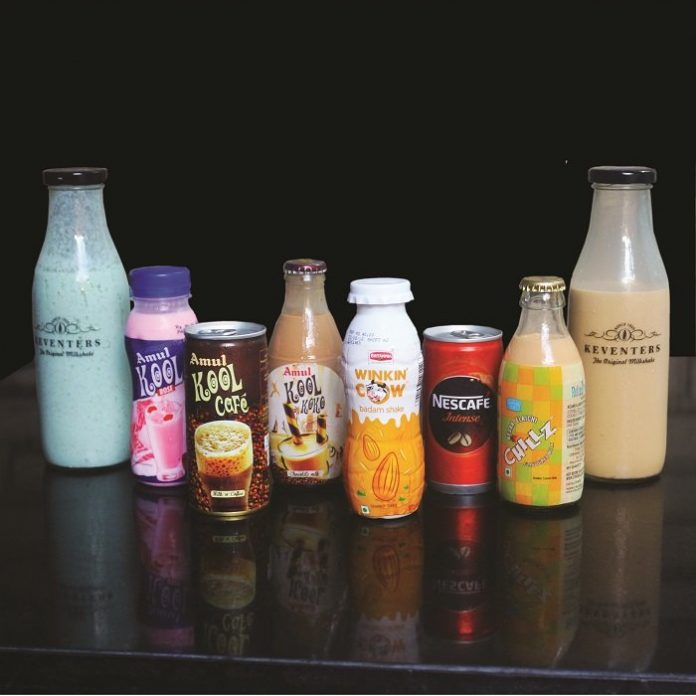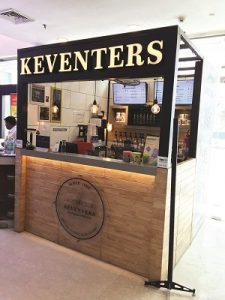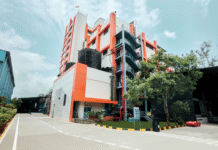
Flavored milk, a delectable combination of milk and nuts, fruit, and perennial flavors such as chocolate and vanilla, is a popular dairy product consumed by Indians. Research firms suggest that flavored milk is more popular than dahi (yogurt), ice cream and cheese, ranking second only to milk. Moreover, the dairy drink segment dominated new products introduced to the Indian market rising from 20% to 43% of all new product introductions between 2012 and 2016, according to the global market intelligence agency, Mintel.
With rising per capita income in the country (up to 7.3% in FY 2015-2016, according to The Economic Survey), Indians are spending more on upmarket food products. Increased disposable incomes are helping them to shift to a healthier way of life by opting for vegan food products in dairy and non-dairy segments. Associated with animal-rights activism, ‘veganisn’ is the latest food trend in India today. In order to cater to vegan palates, the dairy industry is coming up with non-dairy vegan products such as tofu paneer, soy curd and ice cream. Meanwhile, flavored milk is becoming the buzzword for a healhy lifestyle and consumers are swapping carbonated drinks with this convenient and wholesome dairy product. Dairy giants such as Amul and Mother Dairy offer various choices to consumers ranging from ethnic flavors such as elaichi and kesar to perennial flavors. It has also become an opportunity for smaller private dairy suppliers and boutique and ‘small food’ brands.
Owing to its popularity, the changing trends in flavored milk can be observed in most super stores, retail shops, and milk booths and even metro stations and hospital waiting areas. One such super store, Big Bazaar, in Great India Place (GIP) in Noida displayed stacks of flavored milk by brands such as Amul, Mother Dairy, and Britannia in various forms of packaging.
The glass bottle

packaging solutions for flavored milk
First seen in 1785 in rural Vermont, the glass bottle was used for home delivery of milk. Today, milkshakes are being served in the same vintage glass milk bottle that represents freshness and purity, with a sense of nostalgia attached to it. Brands such as Amul and Mother Dairy are among the biggest suppliers of bottled flavored milk with flavor variants such as chocolate, strawberry, rose, elaichi, kesar, and badam. The 200 ml flavored milk bottle by Amul costs INR 22 making it an affordable dairy product for the increasingly health concious.
Founded by a Swedish national in the early half of the 20th century, and later taken over by an Indian industrialist, Keventers has been reincarnated as a legacy super brand by its descendents. A Keventers kiosk in the GIP mall in Noida serves milkshakes ranging from its classic flavors such as tutti fruit, chocolate, and choco-peanut butter to hybrids such as mint Oreo crumble and almond coffee rose, priced between INR 125 (300 ml) and INR 250 (500 ml). The retro-chic glass bottles with the Keventers cursive flourish and font of the original logo immediately appealed to youth who began sharing pictures of the product on social media such as Facebook and Instagram and helped to popularize the brand’s revival.
Social media drives the youth and on-the-go segments

Amul
Smaller sizes of flavored milk appeal to the rising on-the-go segment. In an article published on Quartz India, Aman Arora and Agastya Mihir Dalmia, the resurrectors of the 93-year-old brand Keventers, said, “We’re trying to make the bottle a collector’s item. A smaller 300 ml size will shortly be added to the current 500 ml standard. With the youth as the primary target, social media remains the preferred mode of communication although newspaper and billboard advertising are also as effective to spread the word.” The revived Keventer recently launched its 200th outlet in Dubai with a plan to strengthen its market in the Middle East.
While increased environmental awareness has led to several eco-friendly paper-based packaging solutions, glass bottles in vintage designs are preferred by flavored milk brands such as Keventers and Amul. The flavor is visible and the glass bottles imply sustainability since they can be reused 50 times, making the consumer feel conscious about the environment while being associated with a global brand. Moreover, glass bottles are associated with gourmet products rendering a sense of luxury and the minimalist graphics suggest the simplicity and the strength of the product and brand.
Aseptic PET bottles
Flavored milk is also available in aseptic PET bottles by brands such as Britannia and Amul. PET bottles efficiently reduce the overall cost of packaging leading to increased production volumes. RS Sodhi, managing director of GCMMF Ltd. (Amul), in his interview with GEA (Global Endometrial Ablation), a global equipment and process technology provider for the food industry, explained that Amul Dairy had, for over ten years, sold flavored milk drinks and drinking yogurt in glass bottles. This caused difficulties during the peak season because not enough glass bottles were available. Also, glass bottles are not as hygienic as PET bottles. Moreover, they require storage space and are heavy and fragile to transport across India. PET bottles, on the other hand, are made online and hence do not need to be stored. Sodhi says that he was able to increase production ten-fold without increasing his factory footprint and, as the weight of the PET bottles is negligible, the product became easier to transport without breakage.
Sodhi believes that the product presented in PET bottles with wraparound and shrink-sleeve labels are more attractive than glass bottles or carton packaging. “People already know about the product,” said Sodhi. “Today’s youth want something very contemporary and glamorous. It is our job to make the product available and affordable for them in a trendy packing. We have received excellent response from our customers.” Amul and Britannia use aseptic PET bottles for their flavored milk. The 200-250 ml of flavored milk costs INR 20 by Amul and INR 40 by Britannia.
Carton and flexible packaging

sizes of milkshake bottles for its onthe-go segment at Max Hospital
The most dominant packaging option for 200-250 ml flavored milk in India is still flexible packaging and laminated or aseptic cartons. These two packaging options allow manufacturers to transport large volumes and store their products at low costs. In addition, they are popular in smaller size packaging for on-the-go dairy product such as flavored milk.
Amul and Mother Dairy are aware of the potential of these packaging options. Amul provides its flavored milk in carton packaging as well. The low cost of production and the added shelf life of the products gives Amul an added advantage to produce a product that lasts for months with refrigeration. The cost of Amul 200 ml flavored milk packaged in carton packaging is as low as INR 20. Similarly, Mother Dairy provides a range of flavored milk in flexible packaging at INR 20.
Aluminum cans
Aluminum cans are another sought-after packaging solution for flavored milk in India. The cans provide certain advantages for packaging milk products including strength of the material, grease-proof qualities, and barrier properties. Aluminum cans come with an added advantage of better recyclability, which makes them an eco-friendly packaging solution.

flavored milk packaging because of
their recyclability
However, the aluminum recycling industry in India is disorganized owing to the presence of a number of small and medium players concentrated in southern states. Aluminum scrap is collected and even imported and re-melted to supply to downstream industries made up mostly of utensil makers, die-casters and extruders. Recycling saves up to 50% energy compared to primary aluminum production. The power cost is 40-45% of the aluminum production cost in India. Hence, recycling needs to be supported until a cheaper energy source is established.
Leaving no stones unturned, brands such as Amul provide flavored milk in aluminum cans as well. The cost of flavored milk packed in aluminum cans by brands such as Amul remains fairly competitive at prices between INR 20 and INR 30 in India.
Conclusion
The old-school glass bottle with a classic logo reverberates the simplicity of old times. Aseptic PET bottles are not only cost-effective but also offer recyclability. Brands such as Britannia, Amul and Mother Dairy realize the huge potential of flexible pouches, PET bottles and cartons to generate volumes, and hence use them for mass produced products which can be transported and handled with ease and at low cost. Aluminum cans are also gaining in popularity for beverages including flavored milk.
This article references from www.mintel.com, www.imarcgroup.com, www.gea.com, www.qz.com, www.aluminiuminsider.com











interesting insights